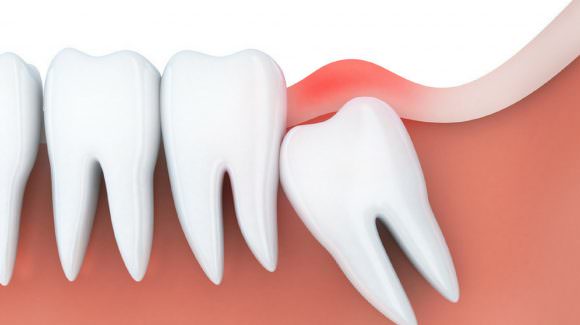
In most cases this is because the wisdom teeth are susceptible to repeated infections. They stand for a base where food remains get settled on and moreover they are hard accessible for cleaning which may lead to tooth decay and gum disease.
Problems with wisdom teeth can occur at any age, however, they usually appear at puberty in both men and women.
Symptoms of damage to wisdom teeth:
• soreness,
• swelling,
• unpleasant taste and sometimes stiffness of the jaw which may make it difficult to fully open the mouth.
After removing the wisdom teeth
The wisdom tooth surgery can cause temporary discomfort, swelling and bruising during the first few days after extraction. The harder the tooth to remove, the greater likelihood of complications.
Presumptive infection following the procedure may result in high temperature, enormous swelling and severe pain which can not be relieved by taking painkillers – in this situation you should contact a dental clinic as soon as possible.
The risk related to wisdom teeth removal
Upper wisdom teeth:
The roots of the wisdom upper teeth may be located close to the sinuses. After removing these teeth, an opening may appear between the bay and the mouth. It is important to follow the dentist’s instructions, especially if it is not recommended to blow the nose for some time after extraction.
Lower wisdom teeth:
The lower wisdom teeth can be placed very close to the nerves in the jaw. Your dentist will inform you about the potential risk of the nerve damage which can lead to numbness or tingling of the tongue, lips and chin, and even to taste disorders.
Diagnostics are normally carried out with RTG (X-Ray), which allows us to determine if the wisdom teeth are close to the nerves and whether injuries may occur. It is advisable to seek the medical consultation with the dentist before making decision about the wisdom teeth removal.


